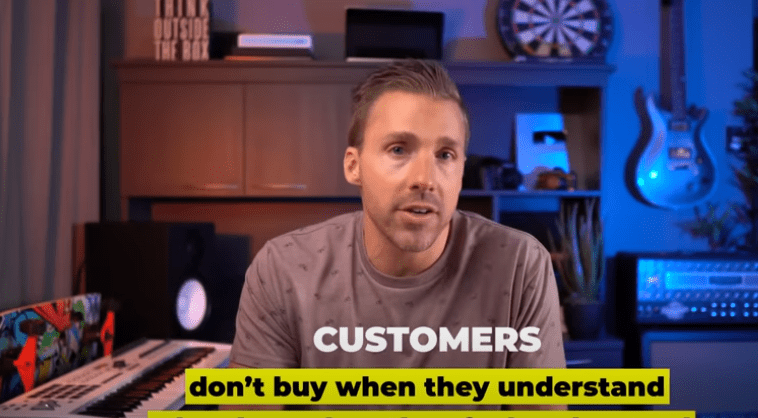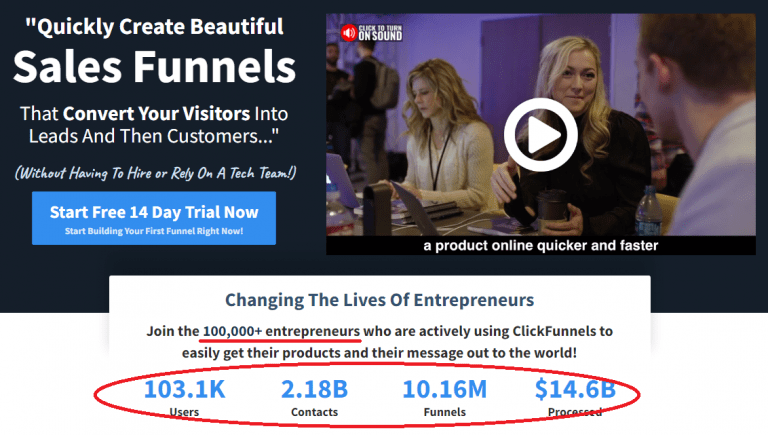This Is How You Can Influence People Like JT Foxx
How would it change your life if you had the power to persuade and influence others?
Business coach, JT Foxx has built a coaching empire and sold millions worth of coaching and training.
Much of this can be credited to his ability to persuade and influence his audience.
Strong persuasion skills will help you get what you want out of life. Whatever that means to you.
It could mean getting a new client in your business. Getting a job promotion. Convincing the girl or guy you fancy to go on a date with you.
Analyzing the persuasion skills of others is like a cheat code to becoming more persuasive yourself. Doing so can teach you more than any book or course on influence and persuasion.
In a previous article, I explained some of the psychology behind JT Foxx’s events that help him sell $250,000+ of coaching at his events. His presentations are so effective that audience members will literally run to the back of the room to buy his training products.
If you have ever attended a JT Foxx seminar, you will know exactly what I’m talking about.
This article will look at a few extremely important factors that I didn’t discuss in the first article.
It will draw on ideas used by not only JT Foxx, but some of the world’s most influential people like Donald Trump, Gordon Ramsay and Russell Brunson. Understanding these ideas will make you a far more effective and influential speaker.
Some of the principles I explained in my first article (and this one) could potentially be used in an unethical way. These psychology tactics are very powerful and could be used harmfully by someone with bad intentions.
Since writing the original article, I’ve had the opportunity to speak to JT Foxx directly.
These conversations gave me the impression that he is a genuine guy with good intentions. While his events are very powerful and persuasive, he does it with the intention of improving people’s lives.
In this article, I’ll also look at how influence and psychology principles can be used to create a positive outcome for yourself and whomever you wish to persuade.
A win-win situation. But I’ll also offer my take on where it becomes unethical.
THE SILENT OBSTACLE THAT WILL STOP YOU FROM PERSUADING PEOPLE

Imagine the following situation…
You offer a coaching program to teach people how to present online webinars.
It’s a great program. You provide a detailed 7 step process on how to create the webinar. You show exactly how to attract ideal buyers to your webinar using Facebook ads. You teach people how to craft a 10 minute sales pitch at the end which converts 30% of viewers.
The program sells for $1997 but that’s a bargain considering that many of your students have earned over $20,000 in just one webinar, by following what you teach.
But then you meet a guy called Grant at a networking event. Grant is a fashion consultant who teaches people how to dress in a way that increases their confidence and self-worth.
He’s good at what he does but has trouble getting clients. As you talk, he reveals to you that despite some limited success in his business, he’s not where he wants to be. Every morning he wakes up feeling unsatisfied.
When you ask him to explain to you what value he brings to his clients, you receive a very bland elevator pitch. It makes sense.
You understand what he does. It just doesn’t get you very excited. It doesn’t excite anyone else for that matter,
But you want to be supportive. At risk of offending a potential client, you don’t tell him your honest thoughts on his elevator pitch. Instead, you try to sound encouraging and say “oh that’s really cool Grant.”
The webinar coaching program you offer would show him exactly how to explain the value of his services in a compelling way. It would give him the tools to get more clients. In fact..your coaching is just what he needs. And you know that if he entered your program, his business would boom.
Grant is interested but not convinced. You tell him about all the stuff you teach in the program…All the success stories..The money-back guarantee. But Grant still doesn’t want to join…
What gives?
On the face of it, Grant seems like the perfect prospect. But Grant won’t buy, no matter what you tell him.
So what’s the problem? And how do you overcome it…
There two issues here…
1. Grant has limiting beliefs that stand between him and investing into your program
2. Grant’s behavior got him into a position he’s not happy with and you enabled that behavior
HOW OTHER PEOPLE’S LIMITING BELIEFS WILL DESTROY YOUR INFLUENCE
When you started talking to Grant about running webinars to promote his fashion consulting services, several thoughts immediately entered his mind.
His first thought was “I’m not a good speaker, I couldn’t possibly run webinars that involve speaking to a large audience.” Grant once gave a small talk to a group of business owners about dressing for success. Nobody from that group hired his services and he has always used that as evidence that he isn’t a good speaker.
Then he started to doubt his own experience. He has been working as a fashion consultant for over 3 years but he knows other fashion consultants who have been in the industry for 15+ years. “Why would anyone watch a webinar by me,” he wonders.
And then finally, his insecurities regarding his accent creep into his mind. Grant emigrated from Belgium twelve years ago but still has the Belgian accent. He feels that people don’t take him seriously with his accent and for this reason, a webinar wouldn’t work.
These are called limiting beliefs.
But you didn’t know about any of these limiting beliefs. He didn’t mention them to you and you didn’t ask the questions to uncover them.
When trying to persuade someone, you need to assure them that doing what you want will lead to a positive outcome for them.
The person might even be convinced that you’re the best coach in the world. Or you have the best product in the world. But if they don’t believe it will work for them, they won’t buy.
You can share testimonials and client success stories. But some people still think their situation is different from those who have succeeded.
In his talk at Grant Cardone’s 10X conference, ClickFunnels founder Russell Brunson talks about how everyone he talks to thinks their business is different. Everyone has a reason why Clickfunnels wouldn’t work for their business.
These are limiting beliefs and Brunson knows he has to overcome those limiting beliefs during his presentation. One of the most obvious limiting beliefs that would stand between ClickFunnels and a sale is “I don’t have tech experience.”
Someone who holds this limiting belief will be reluctant to use a product like ClickFunnels because they would be concerned that their lack of tech experience would stop them from getting the results that Brunson promises.
To overcome this, Brunson speaks at length about how easy it is to use ClickFunnels. He even gives a product demonstration showing how you can build a funnel in just 7 minutes using Clickfunnels. And in the package he offers, he includes training that shows you exactly how to use the product.
If you’re interested in learning more about how Brunson influences people in his 10X presentation, check out my recent article.
I provide a complete analysis of the influence and persuasion principles he used to make $3.2 million in sales from one presentation. Brunson is one of the best in the world at this and you can learn a lot from him. Click here to read the full analysis.
Like Brunson, JT Foxx is very clever in the way he overcomes limiting beliefs during his seminar. He clearly understands the most common limiting beliefs that would stop someone from purchasing his coaching services.
In my original article, I gave the example of a story Foxx tells during his seminar about a client who previously worked at Nestle. She had no business experience but joined a JT Foxx program and went on to become a millionaire.
This speaks to the audience members who hold limiting beliefs around their lack of business experience. After hearing this story, those audience members begin to think that this could work for them, despite their lack of experience.
WHEN YOU NEED TO BE BRUTALLY HONEST
Let’s return to the example with Grant. When Grant gave you his elevator pitch, you knew it was terrible but you didn’t want to tell him that.
You wanted to be supportive but instead, you were enabling destructive behavior. When your support enables someone’s destructive behavior, it actually perpetuates their problem, rather than helping them.
You were perpetuating the problem (bad elevator pitch) that got Grant into a bad place.
In his seminar, JT Foxx used the example of an anorexic woman who doesn’t eat. He said every person in the room could tell that woman she needs to eat. But if just one person said to the woman “don’t listen to everyone else, keep doing what you’re doing,” that would be enough to enable her destructive behavior.
During the seminar, Foxx performed a live coaching session with four members of the audience. One of those audience members was the owner of a small marketing agency. Foxx asked him to present his sales pitch.
The pitch was lackluster and uninspiring.
JT Foxx didn’t sugarcoat his feedback as many coaches would. He told the agency owner in no uncertain terms, that his poor pitch was the reason his business was failing.
The audience member could have been insulted by this attack on his pride. Indeed, he did become somewhat defensive. But if he could accept what JT Foxx told him, it opens the door for real change to occur.
And isn’t that what influence is?
Promoting a change in someone’s behavior.
If Foxx had given the agency owner a pat on the back for his pitch, it would have enabled the destructive behavior. The agency owner would likely be unmotivated to change his behavior.
It reminds me of a scene from the movie Whiplash. The lead character Terence Fletcher says “there are no two words in the English language more harmful than good job.”
His point is that the words good job enable the subpar behavior that prevents people from getting to where they want to be. Instead, people need a dose of harsh honesty to bring the best out of them. And that’s the approach Terence uses to influence his students to become better musicians.
He tells the story of how jazz musician Charlie Parker became the talented musician he was because Joe Jones threw a cymbal at his head when he was young. Parker was laughed off the stage and this experience pushed him to become better.
In the scene, his former student Andrew asks Terence “Is there a line? Can you go too far and you discourage the next Charlie Parker from ever becoming Charlie Parker?”
Terence responds that the next Charlie Parker would never be discouraged.
Personally, I think this type of harsh honesty should be used with caution when trying to influence others. If used correctly, it can be an incredibly effective tactic that provokes the change in behavior you’re seeking. But it could also backfire.
JT Foxx delivered his harsh truth to audience members who participated in the live coaching, around 4-5 hours into the seminar. By this point, he had already established himself as an authority.
In Whiplash, Terence Fletcher was perceived by his students as an authority. His students were willing to accept harsh criticism from Fletcher because they viewed him as an authority.
For this brutal honesty approach to be effective, you should first build your credibility in the eyes of the person(s) you’re trying to influence. I explain how you can establish yourself as an authority in my original JT Foxx article.
And even when you have established your credibility, you may need to be tactful when using this tactic. Many people could respond to your honesty with defensiveness or even aggression, making it very difficult to influence them.
HOW TO STAND OUT ABOVE THE CROWD
Recently, I attended another full-day seminar, similar to the one hosted by JT Foxx. The speaker was an Australian personal development coach called Benjamin J Harvey.
Harvey spoke well. He was obviously very knowledgable. I’d never heard Benjamin J Harvey speak before…
Yet, I felt like I’d heard him speak 50 times before.
He sounded just the same as 95% of other personal development speakers in the world. For that reason, the presentation felt predictable. And when something feels predictable, the brain tunes out because it feels like it already knows what’s coming next.
If you’re a speaker and someone in the audience tunes out during your presentation, you can’t possibly influence them.
You will have exactly the same problem if you’re a salesman and your sales pitch sounds the same as every other salesperson. Your prospect will feel like they have heard your pitch before and you will lose his attention. Once you lose his attention, influencing him becomes almost impossible.

If you’ve never heard JT Foxx before, his style will surprise you. It’s unexpected because it’s unlike most other business coaches you’ve heard before. He’s not afraid to be honest with people and risk offending members of the audience, while other coaches will go out of their way not to offend anyone.
Because his style is unexpected, it gives your brain a reason to pay attention. Your brain becomes curious and senses a potential threat or opportunity.
Foxx isn’t the only influential figure who does this. Think of polarizing personalities like Donald Trump, Gordon Ramsay, Simon Cowell and Gary Vaynerchuk.
These personalities command attention because they go against the status quo. They shock the audience with their honesty, cursing and assertiveness. All of which is unexpected from politicians, TV chefs and talent show hosts.
Gordon Ramsay’s Kitchen Nightmares and Hell’s Kitchen became some of the most popular cooking shows in the world because his polarizing style grabbed the viewer’s attention…
Not everyone likes it when you do this. It makes some people feel uncomfortable. Some people are offended by it. Foxx, as well as Trump, Ramsay, Cowell and Vaynerchuk all have their share of critics.
But even if you don’t like the way they speak, it’s very hard to ignore them. They get people’s attention. And when you have someone’s attention, you can influence them.
It’s not the fact that these people are polarizing which makes them influential. Being polarizing just gives them the attention they need to be influential.
I don’t think you need to be as polarizing as a JT Foxx, Donald Trump or Gordon Ramsay to get attention and influence people. There are other ways to attract and hold attention.
Going against the grain and doing something that is unexpected from people in your industry can give you the attention needed to influence others.
Want to see examples of how people try to get your attention in order to persuade and influence you?
Pay close attention to YouTube ads. YouTube gives advertisers five seconds to talk to the viewer before the viewer has the option to skip the ad.
That’s five seconds advertisers have to grab the viewer’s attention. If they can’t do so, the user will hit the skip button and never hear the advertiser’s full message.
Knowing this, many advertisers will try to do something unexpected in those first five seconds to get your attention.
Watch this ad by Sabri Subi, the founder of Australia’s fastest growing marketing agency King Kong. See what he says in the first five seconds of the ad…
That five second introduction will be enough to keep many viewers watching beyond the five second mark. Now he has their attention and he can begin to influence them.
Whether you’re writing a sales letter, doing a Facebook live video, writing a speech or delivering a sales pitch, you should think of it like a YouTube ad. What can you do to gain your audience’s attention?
Once you have it, you can begin to influence.
WHEN DOES PERSUASION AND INFLUENCE BECOME UNETHICAL?
The ideas I’ve discussed in this post and my original JT Foxx post can be very powerful. If you understand the psychology behind influencing others, it’s like having a superpower.
Persuasion should always be used to create a win-win outcome.
But it can be used in an unethical way that may produce negative outcomes for others.
When used to influence others to do something that is within their best interests, I believe it is ethical to use the influence strategies. You could even argue that it would be unethical not to employ these strategies if the outcome is truly within the other person’s best interests.
In my own blog, I use certain techniques to persuade readers to consume my content. And I see this as a win-win for myself and my reader.
I honestly believe my content is some of the best content available online on the topics of marketing and persuasion. Anyone who reads my content receives a massive benefit from consuming it.
And it’s completely free. I’m not charging anyone $2000 to learn from me. So there is really no downside for the reader.
By persuading my audience to read my content, everyone wins and nobody is losing. That is what I consider ethical persuasion.
JT Foxx uses influence in his seminars with the intention of producing various outcomes. One of which is to help people overcome the limiting beliefs that are holding them back from the life they want.
If he’s successful in doing so, the end result is within the best interests of those he is trying to influence. You would have to say this is an ethical use of influence.
One of the main intentions of any speaker who runs a free information seminar is to sell their products. And they will attempt to use different forms of influence to achieve this.
But is this truly ethical?
Many courses or coaching products will produce positive outcomes for their students. But there are very few programs with a 100% success rate.
So can you justify the use of persuasion and influence strategies to sell a program that may or may not have a positive outcome?
Many gurus use psychology and persuasion techniques to sell courses that have very low success rates.
They intentionally mislead people over the benefits of joining their overpriced course or program.
I consider that extremely unethical. These courses could easily labeled as scams.
And unfortunately that’s very common in many industries.
As I stated in my previous article, I didn’t purchase any of JT Foxx’s coaching products myself. I don’t know the success rate of his programs.
But based on my discussions with him, I feel Foxx is a genuine guy with good intentions.
At any JT Foxx seminar, there will be people who aren’t a good fit for his programs. But because the seminar is so persuasive they end up buying anyway.
I asked JT about this in our last discussion and he told me that his team will turn away buyers if they don’t feel they can truly help them.
I think that’s an important lesson to consider. If your marketing attracts someone whom your product would not truly benefit, then you have a duty to turn them away.
Unfortunately, there are many speakers and salespeople who use these psychological influence strategies to persuade people into buying products that are not in their best interests. This is when the use of influence becomes unethical.
WHAT SHOULD YOU DO WITH THIS KNOWLEDGE NOW?
The ideas I’ve presented in this article and my previous article are very powerful. Many of the world’s top coaches and speakers understand these concepts but don’t want to talk about them.
Now you understand these ideas, you can use them to influence people in your life. You can also be more aware of when people are using them to influence you.
If you’re using them to influence others, only do so in an ethical way that is within everyone’s best interests.
Psychology and influence is one of the most important skillsets you can learn if you want to have an impact in this world. In my study of the world’s top achievers, one thing that sets them apart is their ability to influence others.
Fortunately, you can learn from these people and steal their influence techniques to make yourself a far more influential person.
If you want to learn more about this, then check out my article on Russell Brunson. I provide a detailed analysis of the influence tricks he used in a 90 minute presentation that earned him $3.2 million!
I also have a comprehensive guide to marketing psychology with loads of examples that you can read here.







